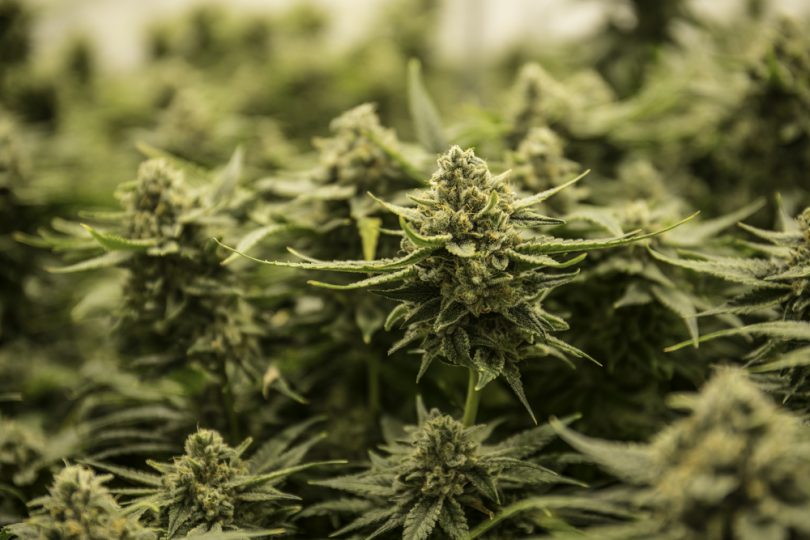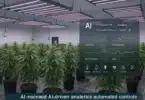South America is becoming a new hotspot for changing cannabis laws, and international cannabis trading. One of the biggest providers of cannabis in South America is Paraguay, with much of its product being moved to Brazil. But it’s all black-market. Can the new rules change this?
Paraguay is a landlocked country in South America which is bordered by Brazil, Argentina, and Bolivia. While it has suffered a significant amount of civil unrest and wars, the country has been democratizing since the late 1900s. This too, has come with years of military instability, political assassinations, and other corruption.
Paraguay has about 7.2 million people, and is considered a developing country. For many years between 1970-2013, Paraguay had the largest economic growth in South America. Paraguay depends a lot on mineral production, which accounts for about 25% of the country’s GDP, and for about 31% of the workforce.
One of Paraguay’s big money makers isn’t on the books though. In fact, Paraguay is one of the biggest (if not the biggest) suppliers of cannabis in South America, spreading its outputs to Brazil, Chile, Argentina, and Uruguay. While specific numbers are hard to come by, it’s estimated that somewhere in the neighborhood of 6,000-7,000 hectares of cannabis are grown, and specifically for the cultivation of marijuana (high-THC cannabis flowers). In fact, it’s estimated that 80-90% of the marijuana that gets consumed in Brazil, originates from Paraguay.
To learn more about cannabis, subscribe to the Medical Cannabis Weekly Newsletter
Some basics on Paraguay and cannabis
Paraguay decriminalized small amounts of drugs as early as 1988, allowing for up to two grams of cocaine or heroin, and up to 10 grams of marijuana so long as its for personal use. The law also states that people who are in possession of these substances, but have a prescription from a doctor, are also exempt from prosecution.
Paraguay’s National Anti-Drug Secretariat (SENAD), estimates Paraguay has 200,000 farmers who depend on marijuana cultivation for survival. This is particularly true in the northeast of the country where the weather is rainier, and the plants are that much less accessible to outsiders. It is thought that approximately 60% of the cannabis being grown illegally is being done so in farmland or livestock pastures, or hidden within forests, or with other vegetation. Growing cannabis is necessary for many farmers who have no other way of making a living.
Paraguay looks to close the gap
Paraguay is more than aware of the amount of revenue being lost to a black-market operation, as well as the violence that comes from its illegal drug trade. As with many other countries in South America which have been loosening cannabis laws to provide medical access to citizens, and for the ability to export products – thus joining the burgeoning legal cannabis industry, Paraguay is also making some changes of late.
To be clear, Paraguay legalized medicinal cannabis in 2007, but it wasn’t until 2018 that a regulatory system was established and put into place. This included laws for cannabis on the business end as well. In September of 2019, it was announced that an application process would be opened the following month for businesses looking to enter into the medical cannabis industry. Just days prior to that, the health minister, Julio Mazzoleni, had announced that a resolution had finally been met for establishing the guidelines to acquire a commercial production license.
Argentina Legalized Medical Cannabis in 2017 – and Gives It Away for Free
One of the stipulations of being granted licensing is for license holders to donate 2% of their profits directly to the Ministry of Health. This amount then goes for free medical cannabis to registered patients. In this way it’s a very interesting setup. From the get-go the government is making sure to take care of its own citizens by establishing a sort of tax on private business to feed back into the medical system of the country.
The process includes obtaining five different licenses that cover everything from cultivation to product manufacturing. At the same time this went through, the Senate also passed a law to allow for individuals to cultivate small amounts of cannabis for personal medical use.
A few more stipulations on licensing
- Applicants must provide plans for: growing, manufacture, transport, and security. Plans must fall in line with GMPs.
- Companies that wish to export products to other countries must submit an export plan as well.
- Once an application is approved, the applicant has 24 months to use their license.
- Applications will be evaluated by the following bodies: The Ministry of Industry and Commerce, The Ministry of Health, The National Service for Plant and Seed Quality and Health, and SENAD.
As this gets going, Paraguay now allows imports of cannabis medicines on a case-by-case basis, but this is incredibly costly. The current 2% tax on cultivators is hoped to offset these costs for locals who require cannabis treatments.
In order to grow on a personal level, the recently approved bill states that a patient can grow their own medicinal cannabis plants so long as they have authorization through the Ministry of Health, and that cultivation is done by law.
By February of this year, Paraguay had already approved 12 licenses for cultivation, with 18 applications still in the pipeline.
New Portuguese Growing Operation To Supply German Cannabis Market
And about what Paraguay already grows?
This article started with talk about how 80%+ of the black-market marijuana that ends up in Brazil is grown in Paraguay, and that’s a lot of product. So, the question is how this new setup is meant to help. It should be remembered, of course, that Paraguay shares 2,750 miles of border land with Brazil, and that both countries are known for their corruption, and drug trades.
With such large amounts of cannabis illegally passing over the border, it’s no wonder that this is such a hotspot for all kinds of drug violence. Part of setting up a more defined system is to chip away at the drug violence, by chipping away at the illegal industry. Now, this could certainly be beneficial to a degree – but maybe not as much as intended.
The illegal trade going on between Paraguay and neighboring countries like Brazil is not a medicinal one. Simply allowing people within Paraguay to legally grow medicinal cannabis does nothing to offset the need for the recreational market, or those participating in it. And if the license to grow costs too much money, than local farmers will be left to continue as they’ve been doing anyway.
Conclusion
It would be so easy if a government could swoop in and turn an illegal drug trade into a legal one. But that’s not the world we live in, and often the laws enacted to respond to a problem or situation aren’t exactly accurate to it. Paraguay set out to accomplish a few things. To provide citizens with better medicine, to open up the economy by joining in the global medicinal cannabis market, and to reduce the current drug trade and drug violence, particularly with Brazil.
The first two are being done, but the third is trickier. This business that’s in place right now has been going on for quite some time. Unless Paraguay plans to legalize recreational cannabis and greatly undercut black market prices (like Uruguay), it’s really just the next country to jump into the global medicinal cannabis trade. And while that’s useful for increasing revenue for the country and providing alternative treatments to patients, I’m not sure how much it’ll help the trafficking and violence since it really doesn’t attack those issues directly.
On the other hand, the institution of a 2% tax which cultivators directly pay into the medical system is great, and shows a real push towards helping the citizens within the country. And last, it opens up yet another place in the world for investors as the green rush increases, and more and more people are looking to start operations.







